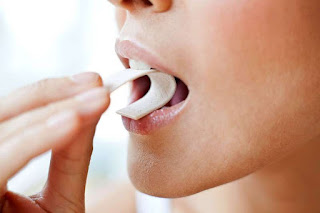A lot of people chew gum habitually and mindlessly, chewing away for hours each day, but have you ever thought about the effects chewing gum may have on your oral health? Today, MS Dental & Maxillofacial centre talks about the pros and cons of chewing gum. Over the past few years there has been a huge debate on how chewing gum affects your oral health. Some people say chewing gum is good for you, while some say it’s bad. In reality, there are both advantages and disadvantages. The following information explains the pros and cons of gum chewing and how it affects your oral health.
List of the Pros of Chewing Gum
Eliminates bacteria
Gum chewing stimulates saliva production, which lessens the amount of bacteria in the mouth. It is essentially the body’s natural mouthwash. Sugar-free gum that contains xylitol increase saliva production and also slows the growth of a cavity causing bacteria in the mouth called Streptococcus mutans.
It Can Clean Your Teeth
Saliva also contains antibacterial, which kill bacteria on sight. The saliva more you produce, the more bacteria will be eliminated from your mouth. More saliva means less bacteria to cause tooth decay and bad breath. Indian Dental Association (IDA) recommends chewing sugarless gum for 20 minutes after meals, since it's been proven to reduce plaque, promote tooth enamel, reduce cavities, and reduce gingivitis. The reason has to do with increasing saliva flow, which reduces acid on your teeth that causes decay. Plus it helps wash away food particles before they become trapped on, around or in between our teeth. It also helps neutralize plaque acids and remineralize tooth enamel, which helps to strengthen our teeth.
Alleviate Bad Breath
Having extra saliva can help to reduce the number of bacteria. Since bacteria can cause bad breath, chewing gum can make your breath sweeter, and not just because the gum smell masks bad breath, but because your breath actually changes! No wonder people pop a piece of gum before a date.
Relieves Dry Mouth
Yet another oral health benefit of chewing sugar-free gum includes reducing dry mouth. It's been noted that chewing sugarless gum stimulates saliva up to 10 times the resting rate. This is a huge help in reversing oral dryness and the discomfort and problems associated with dry mouth
Negative effects of chewing gums
Tooth Damage
Many chewing gums contain high levels of sugar. Repetitively chewing sugared gum encourages bacterial growth in and around the teeth and gums, even though the extra saliva is working to reduce bacteria numbers. Over time, the extra sugar exposure to the teeth can lead to premature tooth decay, gum disease, and other oral health issues. For those with weak or failing teeth, chewing gum may even cause direct tooth damage by excessive wear on teeth, tooth decay, and weaken teeth.
It may cause some people to bite their tongue.
Biting the tongue can be a very painful experience. Repetitive tongue biting, however, can lead to changes in the tissues of the tongue itself. Any bite will cause tissue damage. Repetitive damage can create pigmentation issues and keratinization. Many people who repetitively bite their tongue while chewing gum see white tissues appear, especially on the sides of their tongue.
Jaw Stress
Detailed studies show that habitual use of chewing gums may cause continuous stress on your jaws. If not regulated, this stress can lead to the condition called Temporomandibular Joint Disorder (TJD). This painful condition results from damage to the joint that connects the jaw to the skull. The damage is often caused by repetitive movements of the jaw, such as grinding the teeth at night. It manifested with strong facial pain and great discomfort in the back of the neck which creates painful movements and popping within the jaw when it is moved. Chewing gum can cause overuse of the jaw muscles. When overuse occurs, the muscles of the jaw may become imbalanced and start to contract, therefore causing TMJ. For someone with a regular habit of chewing gum every day will further irritate the jaw.
Chewing Gum While in Braces
Chewing sticking foods, such as gum, while in braces, can lead to broken brackets. Extra force from sticky foods is intended to release the bracket, so the tooth is not damaged. Broken brackets can lead to extra appointments or longer treatment time.
It could loosen your dental work.
Chewing gum becomes sticky after being chewed for some time. That stickiness can help to remove some bacteria from around the teeth and gum line. It can also make a negative impact on any dental work you may have had done. Chewing gum is known to loosen fillings, crowns, and bridges. Depending upon the health of the tooth and gums, it may even remove some crowns and fillings.
Like any habit, it must be enjoyed in moderation to reduce the risk of experiencing bothersome signs and symptoms. It is not a replacement for brushing your teeth, flossing, and other general care habits, chewing gum can help you create a happier and healthier mouth. If you’re unsure about the state of your oral health, it may be wise to discuss your desire to chew gum with your dentist at MS Dental to get their opinion on the matter. Scheduling an appointment is easy!

Comments
Post a Comment